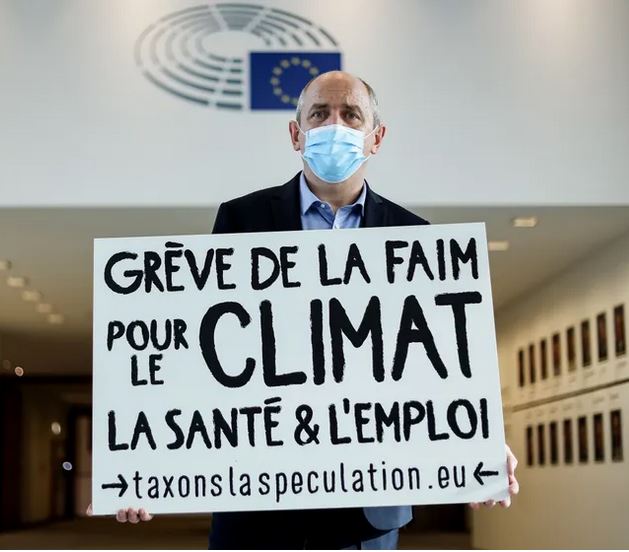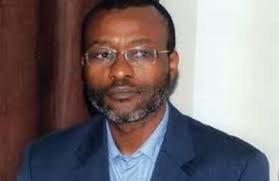Statement by H. E. Mr. Stefan Löfven, Prime Minister of Sweden, at the ECOSOC Integration Segment
I am honoured to be here today, together with all of you, for a segment with an impressive list of both topics and participants. I certainly look forward to our discussion. Let me start by stepping back in time. Reshma, a seamstress in a garment factory, saw the light of day again, after 17 days. Helped by rescue workers, she emerged from the rubble, having survived on dried goods and water. But more than 1 100 of her colleagues died in that factory in Dhaka, when it collapsed in April 2013.
This tragedy was not a unique event. Two million people die at work every year.
It happens everywhere, including in Sweden. Every day, we see people exposed to terrible risks in their work, we see trade union members persecuted and killed, we see children forced to work in the most cynical and inhumane manner, we see migrants exploited under horrific conditions. This is done in the pursuit of profit. But a world that builds on the exploitation of people is neither ethical nor profitable. On the contrary. With decent work, respecting fundamental union rights, we can both increase productivity and promote inclusive growth. If we reduced deaths and accidents in the workplace by just a quarter, we would create resources corresponding to one per cent of the world’s GDP. If we let more women into working life, GDP growth would keep rising. There are opportunities here that the world cannot afford to ignore. Social justice is both ethically right and economically smart.
It is time to make globalisation work for everyone. Globalisation has opened up the world, spread knowledge and technologies, and lifted hundreds of millions of people out of poverty over the past few decades. But true globalisation rests on the idea of sharing. We share a planet, we share a global economy, and we increasingly share a global labour market. For this reason, we also share the task of finally taking responsibility for global working life.
And the seeds of a solution are already there – when representatives of labour and capital meet to ensure fair conditions for employers and employees alike, to the benefit of both – and of the society they work in. What I hope can be developed is a new global concept, where various stakeholders can see the benefits of joining forces to promote joint solutions, while still representing their different interests. It is a concept where each actor also pays attention to and takes into consideration the motives and aims and restrictions of other parties.
A new concept of this kind would encourage cooperation between social partners that could bring peace in the labour market, promote competition, and enhance economic stability and shared prosperity. It is a concept that also builds on the social partners taking their respective responsibilities, as governments also would do, while at the same time recognising what is best for the common interest.
It means, for states, ratifying and respecting the ILO’s core conventions, thereby recognising the right to organise, the right to negotiate and the right to strike. It means, for employers and companies all around the world, respecting these rights in practice, taking their social responsibility and being prepared to negotiate agreements locally, regionally or globally. It means, for trade unions, cooperating and bearing in mind their social responsibility when they negotiate, but also contributing to the overall development of the company or the organisation. And it means states recognising the social partners and social dialogue as essential parts of the democratic form of government, and encouraging concrete agreements through negotiations. This concept of shared responsibility between all stakeholders could lead to a real win-win-win situation. It is the core of what I would like to call a Global Deal.
And this does not require new institutions, merely new tasks in the strong international forums that we have already created. The ILO, with its tripartite structure, has a central role, but needs to be equipped to lead the work at global level. The ILO Declaration on Social Justice for a Fair Globalisation provides a solid foundation for this work. I also see scope for important contributions from the OECD, the WTO, the IMF and the World Bank.
In this very building, an agenda is now being negotiated to meet today’s and tomorrow’s great challenges, to eradicate poverty while saving the only planet we have. What I’m referring to, of course, are the negotiations on the sustainable development goals (the post-2015 agenda) and how they are to be financed and implemented (Financing for Development).
The adoption of the new sustainable development goals and the new financial framework must not be seen as the end of a process. On the contrary, it is the starting signal for more intense, and absolutely essential, efforts to achieve increased sustainable development at global, regional and national levels. This will require us all to work together. It will require practical and concrete approaches. I believe that a Global Deal between the stakeholders will make an important and concrete contribution to the work on sustainable development in all three of its dimensions.
Bringing about cooperation between parties based on mutual respect and shared objectives is not always easy. On the contrary, it requires that all parties involved are willing and determined. It will not go quickly. Rather, it is an initiative that must be sustained throughout the coming decade. But the advantages of choosing this path must be obvious to everyone. Instead of paralysed workplaces, we will have more stable and growing economies. Instead of labour that is repressed, worn out, silenced, we will have people who believe in what they are doing and want to contribute to its success. Instead of a global economy that is stagnating for want of purchasing power, we will have more equal and free individuals who dare to invest and consume. And we will more rarely have to pull women like Reshma out of the ruins of collapsed factories; instead, we will let her and everyone else in our three billion strong labour force be part of an economically, socially and environmentally sustainable global economy that does not repress anyone. This is the target I want to set for a Global Deal. This is the initiative I would like you to be part of. It is a self-evident part of the world I want to engage in for future generations.



Leave A Comment
You must be logged in to post a comment.